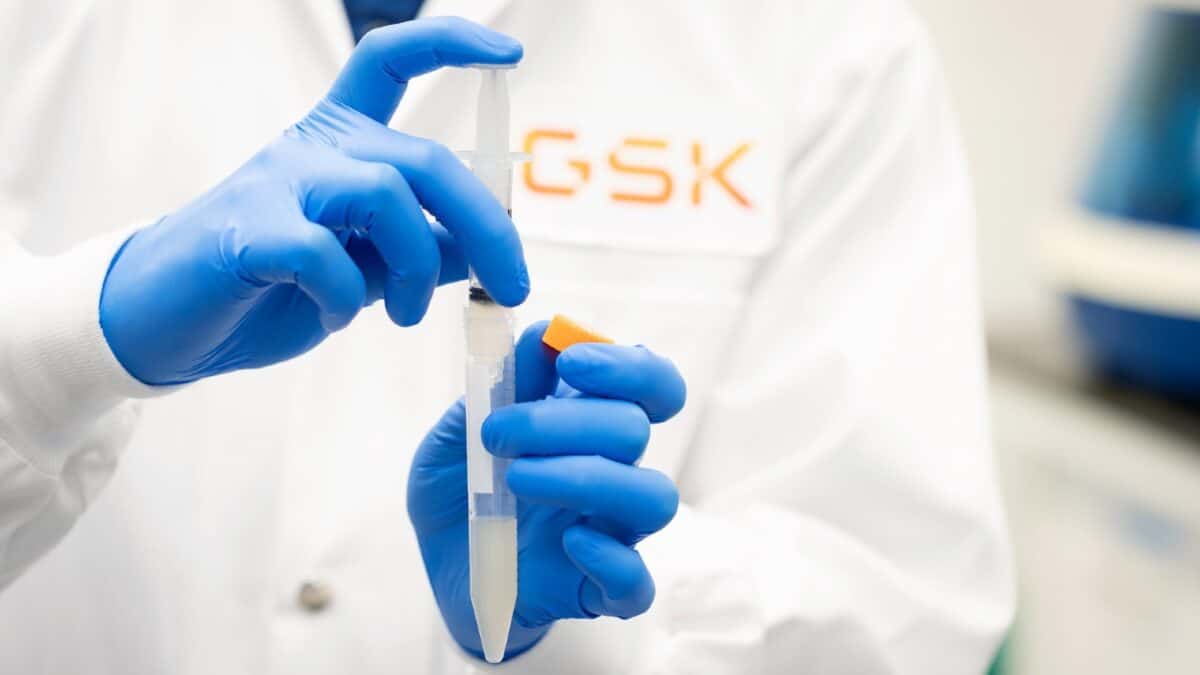It’s true that GSK’s (LSE: GSK) share price has risen around 8% over the past 12 months. But it’s also true that just because a stock’s price has risen doesn’t mean it can’t be a bargain.
It may be that the company is simply worth more than it was before. In fact, it may be worth even more than the current share price implies.
This is certainly true in GSK’s case, in my view.
The best bargain in the FTSE 100?
Many stocks in the FTSE 100 were marked down after the 2016 Brexit decision, rightly or wrongly. This means the index is packed with shares trading under the levels key stock valuation measurements indicate they should be.
Even so, it’s extremely hard to find one as apparently undervalued compared to its peer group as GSK.
On the key price-to-earnings (P/E) stock valuation measure, it trades at just 13.4 — against a peer average of 24.3. This looks very cheap.
But how much of a bargain is it exactly? A discounted cash flow analysis shows GSK shares to be around 60% undervalued at their present price of £16.18.
Therefore, a fair value for the stock would be around £40.45.
This doesn’t necessarily mean the shares will ever reach that price, of course. But it confirms to me that they still look one of the very best bargains in the FTSE 100.
Are there growth drivers for price rises?
Consistently rising earnings power share price rises over time in a growth stock.
Recent tests showed its Blenrep drug helps extend life in plasma cell cancer patients. It’s in the process of filing the results with the US authorities.
Just before that, the US Food and Drug Administration fast-tracked GSK’s Arexvy respiratory syncytial virus vaccine for review. This would be the first vaccine available to help protect those aged 50-59 against the disease.
On 13 February, Citigroup raised GSK stock to a ‘Buy’ recommendation for the first time in seven years. Analysts there also said they expect peak risk-adjusted Blenrep sales of around £2.5bn.
Consensus analysts’ expectations now are that earnings will grow 9.4% a year to the end of 2026.
Is the rest of the business solid?
There are risks in GSK, as with all stocks. Pharmaceutical product development is expensive, so if one fails it’s a major setback.
Legal action is also common in the sector, with the Zantac litigation against GSK a case in point. However, on 23 June last year, GSK announced that the lawsuits had been settled.
The company’s financial position looks strong, buoyed by good 2023 results.
Revenue rose 3.4% to £30.3bn from 2022, while net income increased 11% to £4.93bn over the same period.
For 2021-2026, it expects a 7% compound annual growth increase for sales (against the previous 5%). Adjusted operating profit is forecast to grow more than 11% (versus 10% before) on the same basis.
By 2031, GSK now expects to achieve sales of more than £38bn. This is an increase of £5bn over the estimate given in 2021.
Even before news of the new drugs, I thought GSK’s share price looked huge bargain. This is one reason I’d buy the stock today if I didn’t already own it. The other is its enormous growth potential.








